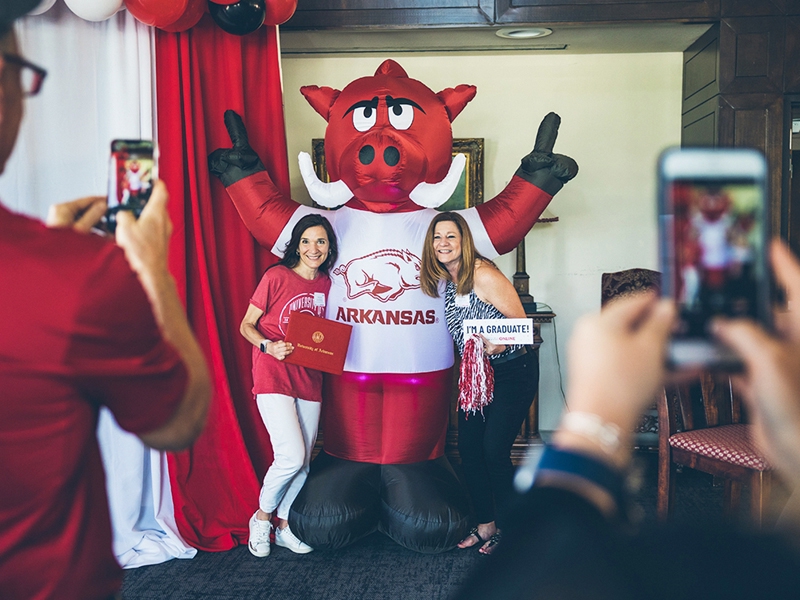
Alison Wilson points to three factors that make the educational leadership doctoral program offered online by the U of A attractive to working professionals: the program structure, the faculty and the other students.
The Princeton Review recently included the program in its rankings of Best Online Doctor of Education Programs for 2024. The unranked list appears in alphabetical order, according to the website. The Princeton Review is a national ranking agency that provides admissions resources for college and graduate school-bound students.
Wilson, in her second year on the U of A faculty, serves as program coordinator. She said students from a wide variety of backgrounds, mostly in the K-12 field, appreciate the relationship-building aspect of the program.
"One of the strongest features of our program is that it is synchronous and cohort-based," said Wilson, who is an assistant professor of practice in educational leadership in the College of Education and Health Professions. "Students build a really strong network with each other. That's our strong suit. Those aspects reinforce relationship-building and serve as an extra form of support."
During three semesters of the program, students travel to campus in Fayetteville for an intensive weekend doctoral seminar.
"It gives them facetime with the faculty, facetime with each other," Wilson said. "It's not just building relationships and rapport with cohort members but with faculty, also. We are intentional about giving students the opportunity to move their study forward those weekends. They work on their problem of practice, and we give them feedback. They walk away feeling like they accomplished a lot and have energy for the next steps. We absolutely want to continue those aspects of the program. We get a lot of positive feedback."
The synchronous classes meet at night because the program is designed for full-time practitioners. The program aims to enhance their professional practice, Wilson said, focusing on the scholar-practitioner aspect in which they take an authentic problem of practice to study so that the results are meaningful for their day-to-day work.
"We have really committed and supportive faculty," she said. "We are always looking at how to serve students better. The faculty are always open to feedback, to be reflective and look at what we can do better and differently."
The program is estimated to take three years to complete. Learn more on the U of A ONLINE website.
Topics
Contacts
Heidi Wells, content strategist
Global Campus
479-879-8760,